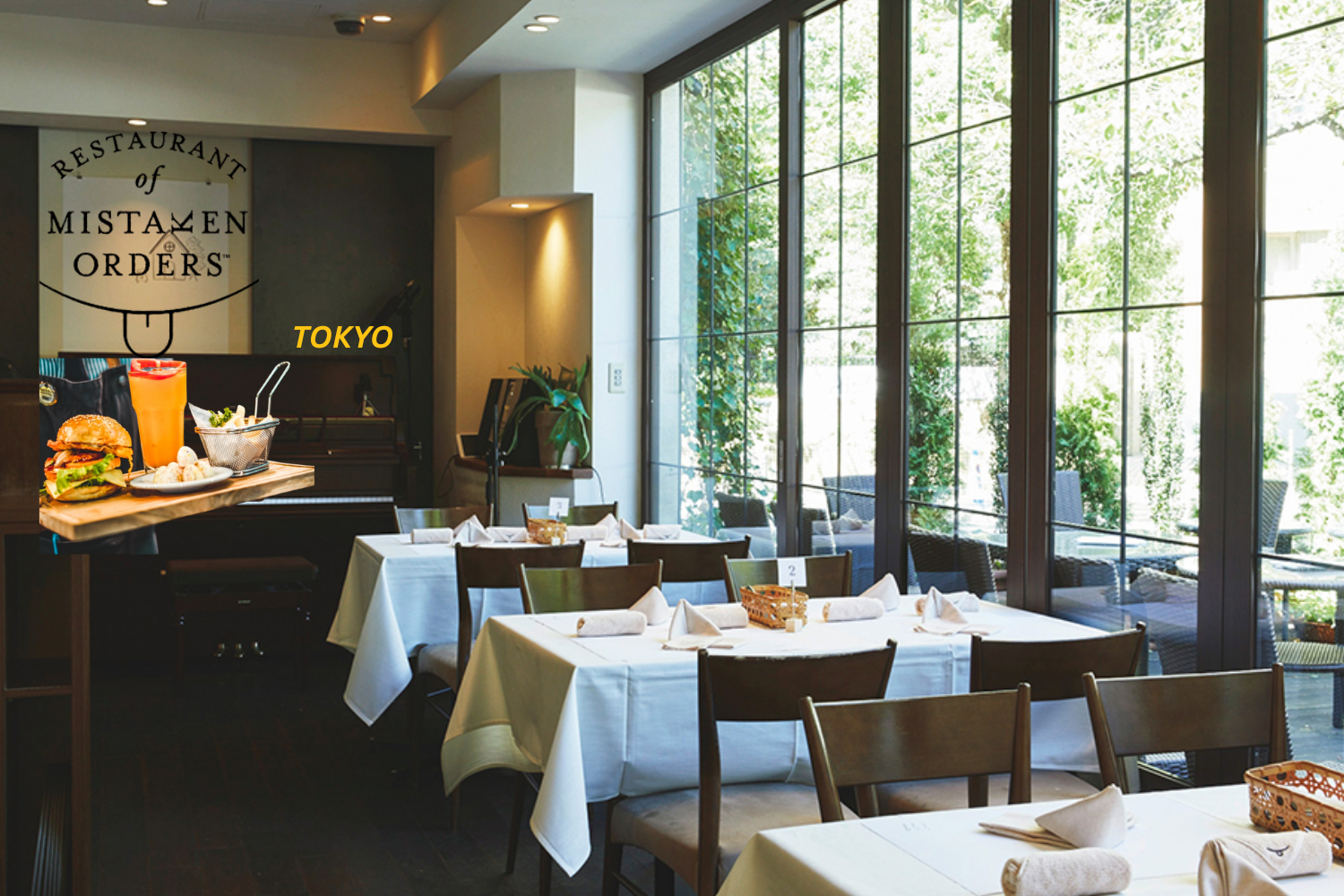The Restaurant of Mistaken Orders: Where Kindness Is Always on the Menu
Ankita
. 4 min read
In the heart of Tokyo, where innovation and tradition often intersect in unexpected ways, a one-of-a-kind restaurant has quietly touched the hearts of people around the world. Called “The Restaurant of Mistaken Orders” (Chūmon wo Machigaeru Ryōriten), this unique dining experience inverts the conventional concept of restaurant service by celebrating imperfection, fostering empathy, and shedding light on a deeply human condition: dementia.

Why is it named like this?
The Restaurant of Mistaken Orders is named this way because the staff, who have dementia, may accidentally serve the wrong dishes. The name reflects the real dining experience in a light-hearted and honest way. It encourages people to accept mistakes with kindness and understanding. The goal is to raise awareness about dementia and reduce the stigma around it. The name helps create a warm, inclusive, and forgiving atmosphere.
What is dementia Disorder?
Dementia is a general term used to describe a decline in memory, thinking, behavior, and the ability to perform everyday activities. It is caused by damage to brain cells and is most common in older adults. Alzheimer's disease is the most common type of dementia. Symptoms can include confusion, difficulty remembering recent events, trouble with language, and changes in mood or personality. Dementia is not a normal part of aging and usually gets worse over time.
A Concept Born from Compassion
Launched as a pop-up restaurant in 2017 by Japanese television director Shiro Oguni, The Restaurant of Mistaken Orders was created not just to serve food, but to change societal perceptions of dementia. The servers here are not trained professionals; they are elderly individuals living with varying stages of dementia.
The idea is simple yet profound: guests place their orders, but due to memory lapses or confusion, they may receive something different from what they requested. Rather than reacting with frustration, guests are encouraged to embrace the surprise with kindness and curiosity.
A Joyful, Mistaken Meal
In a typical restaurant, a wrong order might be seen as a mistake. But at The Restaurant of Mistaken Orders, these so-called “mistakes” are the core of the experience. The name itself is both literal and philosophical, reminding diners that life doesn’t always go as planned, and that’s okay.
Surprisingly, at one event, over 60% of orders were delivered correctly, a testament to the abilities that people with dementia still possess. Even when mistakes did happen, diners were overwhelmingly supportive. A post-event survey revealed that 99% of guests said they enjoyed their meal and experience.
Changing Perceptions
The restaurant is more than a feel-good story it is a social experiment with a mission: to build a more inclusive, compassionate society. By showcasing the capabilities of people with dementia in a public setting, it dismantles the stigma that often surrounds cognitive decline.
Founder Shiro Oguni said it best:
“Dementia is not something that makes a person useless. People with dementia can still make a meaningful contribution.”
Guests are often moved not just by the food, but by the courage and warmth of the staff. The laughter, unexpected moments, and genuine human connection form the true main course.
Not a Permanent Restaurant
Contrary to common belief, the Restaurant of Mistaken Orders does not operate as a regular, permanent restaurant. It appears as a pop-up event in Tokyo and occasionally in other Japanese cities. Each edition is hosted with the help of volunteers, sponsors, and caregiving organizations.
The concept has since inspired similar events and discussions in countries like China, Australia, and the UK, bringing the message of dignity and inclusivity to global audiences.
A Global Message from a Local Table
In a world that often values efficiency and perfection, The Restaurant of Mistaken Orders invites us to slow down, show patience, and see beauty in the unexpected. It reminds us that even amid memory loss and confusion, there is joy, dignity, and the ability to contribute meaningfully.
This Tokyo dining experience is not just about what’s on the plate; it is about what is in the heart.
Final Thought
We learn a beautiful lesson from The Restaurant of Mistaken Orders: patience, kindness, and acceptance have great meaning even in a society that prioritizes speed and perfection. It serves as a reminder that the humanity of individuals with dementia is what defines them, not their illness. Even though an incorrect order can result in an unexpected dish, it always brings a healthy dose of joy, empathy, and awareness. Ultimately, the connections made at the table are more important than the food on the plate.
The Restaurant of Mistaken Orders may serve the wrong dish, but it always delivers the right message.
“It is okay if my order was wrong. It is still delicious.”
— A happy customer
More Stories from
How did India respond to Donald Trump's 25% tariff penalty on India?
Trade tensions between the United States and India have sharply increased as a result of this recent development. Know how India responds to Donald Trump's 25% tariff penalty on India.
Geoffrey Hinton's AI Warning: The Most Dangerous Invention Ever
AI is both beneficial and dangerous, depending on how it is developed, deployed, and regulated.
Unbelievable Facts about World History that will surprise you
Human history and the natural world are filled with mysteries, marvels, and strange truths that challenge our understanding. In this article, we will explore some unbelievable facts about world history.
Why skill-based hiring is gaining importance over degrees?
Skill-based hiring vs Degree, which matters first? what you can do” matters more than “what degree you hold.”
The Hidden Secret of the Great Pyramid’s exposed
With the development of scientific instruments and technology, each day, discoveries about the world are surprising us





